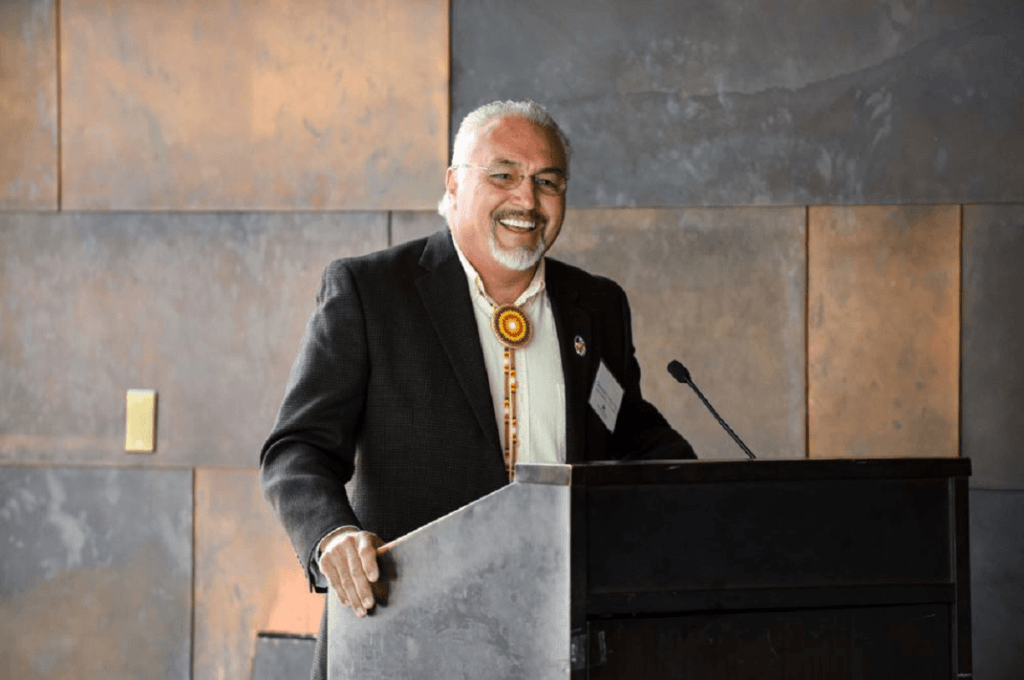Two things are unique about legislation in Minnesota proposed Wednesday by Rep. Pat Garofalo. First, the bill would authorize sports betting on any professional or collegiate sporting matches exclusively for Tribes that operate casinos. Secondly, the bill would make Minnesota the first state in the nation to determine taxes owed by the total amount wagered—as opposed to taxing the operator’s gross gaming revenue.
The Safe and Regulated Sports Gambling Act of 2019 includes plans to form the Minnesota Sports Wagering Commission, a five-person regulatory body for the entire state’s sports betting market.
Like most sports betting bills, Garofalo’s proposal permits in-person sports wagering at Tribal casinos in Minnesota, as well as mobile bets while on resort property. An app would prohibit access to consumers more than 20 feet away from a Tribal property, the bill stipulates.
The bill would also require the new commission to draft two licenses: a sports pool license and a mobile or electronic sports pool license. Casinos would need to apply for one or both.
Tribal Exclusivity
Minnesota is home to 11 federally recognized Tribes that operate 19 gaming venues across the state.
The Minnesota Indian Gaming Association (MIGA) has not weighed in on the Safe and Regulated Sports Gambling Act of 2019, though in January 2019, the Association made it clear it opposes the expansion of off-reservation sports betting in Minnesota.
In January 2019, MIGA Chairman Charles Vig, who is also Chairman of the Shakopee Mdewakanton Sioux Community, wrote in a letter to Minnesota Governor Tim Walz: “While there is a desire by some to consider this matter during the present session, it seems that the public interest would be best served first by careful study of sports betting’s implications in this state, examination of other states’ experiences where sports betting has been legalized, and thorough consultation with the large number of stakeholders interested in it.”

Minnesota is not the first state to propose legislation that would grant sports betting exclusivity to Tribes. On January 23, 2019, Arizona lawmakers introduced SB 1158, a bill that would allow federally recognized Tribes with a gaming compact to offer sports betting in the state, while prohibiting non-Tribal casinos from offering it. 1In Arizona, 16 federally recognized run 24 casinos that offer Las Vegas-style casino gaming. The Arizona bill sets a tax rate of 6.75 percent on adjusted gross receipts.
Minnesota: ‘The Lowest Tax Rate Structure in the Nation’
Rather than taxing revenue, wagers under the Safe and Regulated Sports Gambling Act of 2019 would be subject to a 0.5 percent excise tax that Garofalo’s office has deemend “the lowest tax rate structure in the nation.”
Snapshot of Tribal Sports Betting Across the U.S.
Several Tribes have already launched sports betting operations.
On August 30, Pearl River Resort Casino, owned by the Mississippi Band of Choctaw Indians in Choctaw, Mississippi, became the first Tribal casino to offer sports betting outside of Nevada.
RELATED: Mississippi Choctaws Debut Sportsbook
Over Super Bowl Weekend, Pearl River Resort Introduced New ‘PRR Sports’ Mobile Betting App
On October 16, 2018, Santa Ana Star Casino, owned and operated by the Tamaya Nation, launched the first sportsbook in New Mexico—a state that has yet to legalize sports betting.
RELATED: First Tribal Sportsbook Opens in New Mexico
Some Tribal groups have entered strategic partnerships with outside corporations to offer sports betting
In early 2019, the Oneida Indian Nation and Caesars Entertainment announced their partnership to offer sports betting at Oneida resorts when the New York Gaming Commission passes a resolution to regulate it.
RELATED: Oneida Nation, Caesars Ready to Offer Tribal Sportsbooks in New York
And last year, the United Auburn Indian Community (UAIC), which owns and operates Thunder Valley Casino Resort in California, has announced a future, joint sports betting venture with MGM-GVC, which was recently rebranded as Roar Digital.







